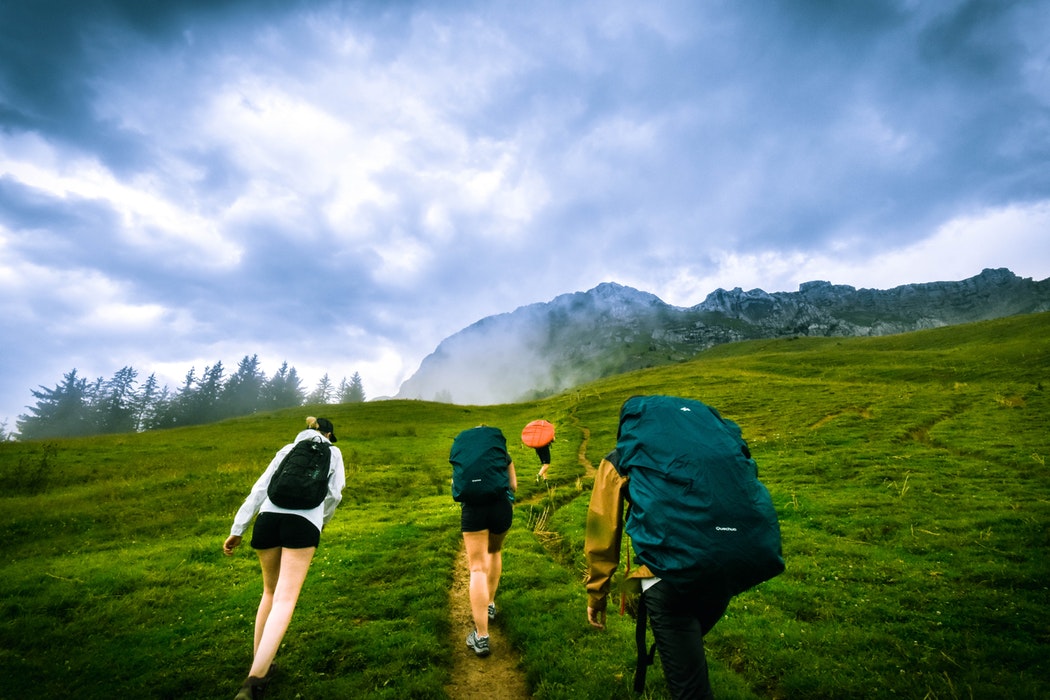How to ensure dry gear in extended wet weather

Finding out that you have not one single dry piece of clothing after a long hike in the rain can be pretty upsetting. No matter whether you go hiking, paddling, or camping, having a pair of dry socks and a cozy sleeping bag is the greatest treasure you can wish for. However, protecting your gear from the water is not that easy, but it’s not impossible. There is always a way to save some dry clothes and sleeping equipment for the night when in extended wet weather. All it takes is to get creative and to listen to the more experienced outdoor enthusiasts. Follow these simple tips on how to keep your gear dry, and you can’t go wrong.
Pack covers

You can use a garbage bag to cover your backpack, but it would be even better to get a waterproof pack cover that’s made for protecting your pack. Choose a pack cover that fits yours. The prices vary between $20 and $40 depending on the brand and the material. Although they are made to protect your backpack from the rain and keep your things dry, pack covers have some weaknesses as well. They don’t fully cover the area around your shoulder straps and hip belts, therefore, these spots are more exposed and usually get wet quickly. Using a garbage bag on top of the back cover will give you a double protection in case you’re planning an all-day hike in the rain.
Garbage bags
Garbage bags are the practical and ultimate cheap way to protect your backpack, your sleeping bag, and other gear. There are a few ways to use a heavy-duty garbage bag on a rainy day. You can use it as a waterproof layer on the outside of your backpack or use a smaller garbage bag to protect your things from the inside and stuff the bag with your belongings.
For outside use, get a heavy-duty garbage bag, at least 3mm thick and make sure it’s strong enough for reuse and can cope with all sorts of manipulation. A heavy-duty bag can also serve you as a shelter if you get caught in a rainstorm. Choose a bright color, if possible orange, to increase your visibility in the event of a survival situation. An orange plastic bag will attract the attention of the rescue crew.
For inside use, you can use a smaller plastic bag. Make sure you first place the empty bag in your backpack and then start stuffing it with all your things. When you’re done, twist the end of the bag to prevent the water getting in. Both uses of plastic bags can fail you if you don’t cover every tiny part of the backpack. Think about placing the smaller items from the side pockets in separate small plastic bags, otherwise, they will get soaked and add weight to your back.
Zip-lock bags

Don’t forget to pack all small items like your phone, camera, paper map and other such things in separate zip-lock bags. Choose durable, freezer-style zip-lock bags that will provide you with secure protection. These bags are more durable than the regular light-weight sandwich bags. Avoid bags with side closures which are more prone to failure after regular use. Squeeze all the air out before closing the bag completely.
Being outside in the rain is a great adventure but you need to be prepared to get wet without freaking out and panicking. Protect your gear, follow these packing tips and you will get the most of it, and will be dry at the end of the day. Good luck!
If you have any comments then please drop us a message on our Outdoor Revival Facebook page
If you have a good story to tell or blog let us know about it on our FB page, we’re also happy for article or review submissions, we’d love to hear from you.
We live in a beautiful world, get out there and enjoy it. Outdoor Revival – Reconnecting us all with the Outdoors.
